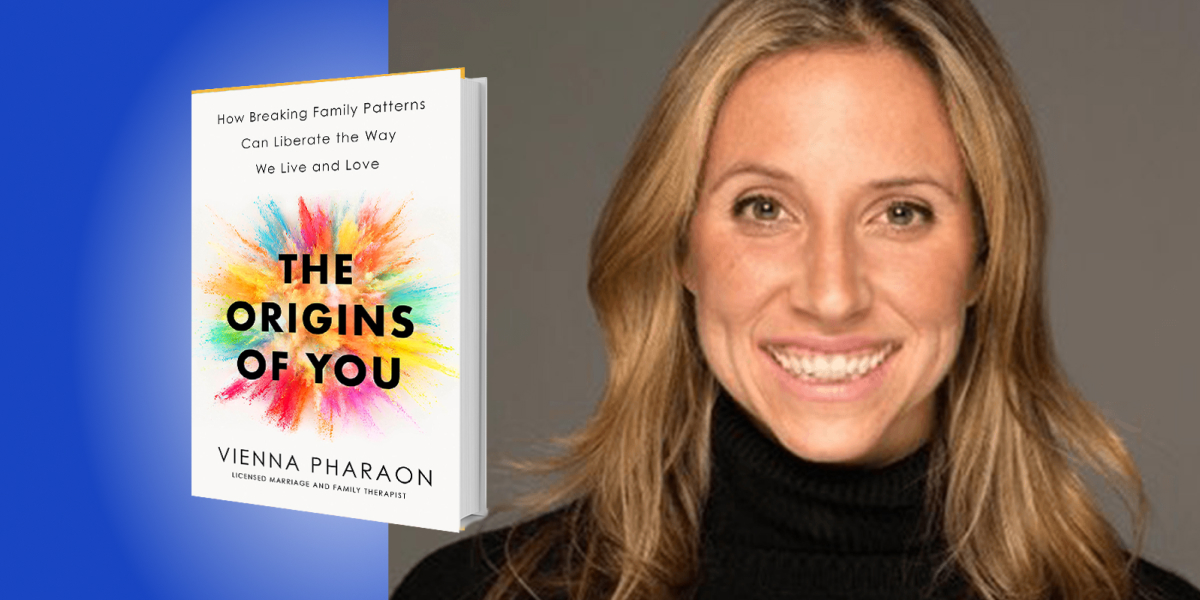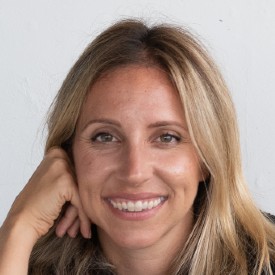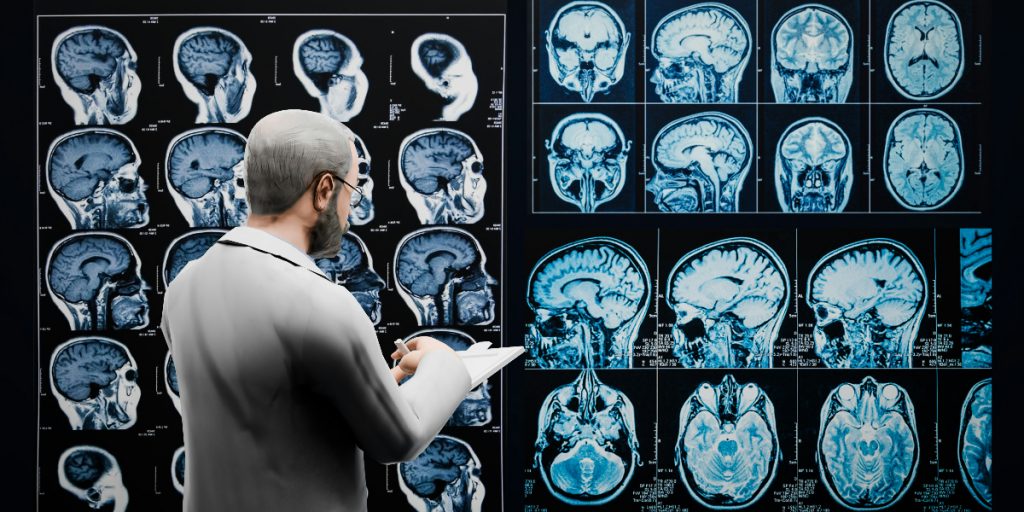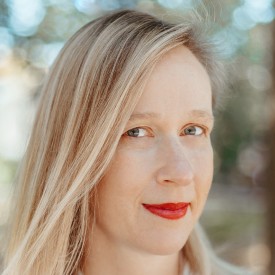Vienna Pharaon is a licensed marriage and family therapist and one of New York City’s most sought-after relationship therapists. She has practiced therapy for over fifteen years and is the founder and owner of the group practice, Mindful Marriage and Family Therapy. She received her Master of Science in Marriage & Family Therapy from Northwestern University, and trained extensively at The Family Institute, Bette D. Harris Center. Pharaon has been featured in The Economist, Netflix, Vice, and Motherly, and has led workshops for Peloton and Netflix, amongst others. She is also the relationship expert for Motherly, a platform for millennial mothers transitioning into parenthood.
Below, Vienna shares 5 key insights from her new book, The Origins of You: How Breaking Family Patterns Can Liberate the Way We Live and Love. Listen to the audio version—read by Vienna herself—in the Next Big Idea App.
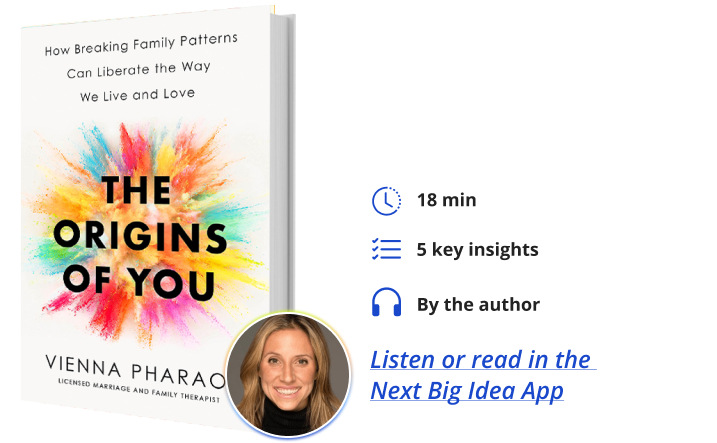
1. Our past impacts our present in ways we may not be aware of.
Most of us want to keep our eyes on the prize and stay focused on where we’re headed. We don’t want to turn back and wallow in the past. We’re concerned about opening Pandora’s box and finding things we don’t want to find. We worry about our family relationships changing if we remember something painful. And we want to offer grace by repeating, “They did the best they could with what they had.”
There are plenty of reasons to avoid exploring the past. You can rationalize, explain away, and protect the image you carry of others. But whether you acknowledge your pain or not, it still exists, and it will run your life in both obvious and subtle ways. Exploration of your past is not about throwing anyone under the bus. Context is important and acknowledging and honoring your pain and your story matters too.
Our family of origin sets the foundation and framework for just about everything in our lives. They’re the first education we get about how to communicate, move through conflict, talk to ourselves, treat others, set a boundary, and love and be loved. What we experienced and what we observed in our family of origin creates and maintains patterns in our adult lives. If you keep having the same conflict with a partner or parent, such as choosing emotionally unavailable people to date repeatedly, or if you’re chronically unhappy in all your jobs, then you’re going to want to look back and see what from your past is running the show.
One of the biggest breakthroughs of my life happened in my late twenties. I was dating someone with whom I saw a future, but then his ex came back into the picture and he started to question whether he wanted to get back into a relationship with her or stay in the one with me. I quickly became the overly understanding partner. I presented like I was unaffected by this and encouraged him to take the time and measures necessary for him to decide. I wanted to be the “cool girl,” which ultimately required me to center his emotional experience over mine. I was chatting with a friend one day and it all clicked. This role of needless woman, unaffected by anything and everything, was an extension of the childhood role I had taken on decades earlier.
“Exploration of your past is not about throwing anyone under the bus.”
You see, my parents went through a nine-year divorce process that started when I was in first grade. There was constant fighting, psychological abuse, manipulation, paranoia, and emotional flooding. I saw my parents crashing and burning. As a tiny human, I decided that my job was to avoid adding additional stress or burden to their already full plates. I became a needless little girl who always said she was fine. I pretended like I was unaffected and found coping strategies that would distract me from my pain. This was my attempt at helping take care of their emotional experience. And there it was: a role I had found myself in as a five-year-old was still leading the charge, maintaining my boundarylessness, inauthenticity, and invulnerability decades later.
2. Painful experiences from the past can create emotional scars.
I call these origin wounds. This is the first time something painful happens in your life that causes you to question your worth, whether you belong, how important you are, whether you can trust others, and whether your overall well-being is cared for, considered, honored, and respected. These wounds get rubbed up against throughout life, either proving the stories the wounds created in the first place, or making you question again and again what’s wrong with you.
You may have had a parent who only showed you love and attention when you scored goals or brought home straight As. That love and attention may have been withheld from you if you didn’t achieve, teaching you that love, connection, and presence were conditional based on your performance. You’re convinced that you have to be perfect or constantly please another in order to be worthy or chosen in romantic relationships or friendships. Or maybe you grew up in a family that had requirements for you to belong, and if you didn’t adhere, you’d be rejected, criticized, or made to feel like an outsider, teaching you to trade your authenticity for acceptance. Today, you find yourself constantly agreeing with friends or people at work, even when you vehemently disagree, just so you can be liked. Or maybe you found out about your father’s infidelity when you were a teenager, shattering your image of the happy and perfect family. Now you find yourself waiting for the other shoe to drop in your adult romantic relationships because of a trust wound created decades ago.
There are endless examples of how unresolved pain will run your life. Some wounds are created when parents are reckless, abusive, or negligent, but other wounds happen even when a parent is well-intentioned. The goal is to step away from rationalizing, comparing, minimizing, or explaining away the pain. Acknowledge it and honor the pain so that you can work with it.
3. Wounds can be healed, and unwanted patterns changed.
I’ve spent over 20,000 hours working with individuals, couples, and families in therapy and it’s given me a front-row seat to our capacity for change, no matter how challenging a story might be. Wounds store a tremendous amount of information, and if you’re willing to acknowledge them, there’s an opening that will be offered. Being aware of what’s driving and motivating a pattern or behavior is key.
I remember a moment early on in my relationship with my now husband when we had gotten into a conflict. For the life of me, I can’t remember what that conflict was about, but I do remember that I couldn’t stop proving my point. We’ve since named that part the “point prover”—don’t worry, we have a name for my husband’s part, the “jackhammer”—but what stood out in this particular conflict was that I needed to be right.
“Wounds store a tremendous amount of information.”
The truth is, that part would show up a lot during conflict. I hated this point prover part. I knew it created disconnection and it wasn’t the way I wanted to exist in my relationship. I worried that this behavior would be such a turn-off that he might not want to be with me. But when you know to begin looking for a story, and that an unwanted pattern is serving something, then you can get curious about what origin wound is running the show.
In my case, it was my safety origin wound. My need to be right was a protective mechanism. When I was growing up my dad was quick with his words and manipulative. Most of this played out between my dad and my mom, but as the observer, I saw how easily it confused her. It was destabilizing, making her question reality. As a child, I learned that I needed to closely track details to make sure I’d never be taken advantage of. Quite literally, being right meant that I was emotionally and psychologically safe.
Identifying this led me to spend the necessary time witnessing my younger self going through that, while also grieving the pain and what that experience took from me. But it also allowed the adult me to become an agent in my own life. I no longer needed to use that protective mechanism in this relationship. In fact, if I continued to, it would have likely created a wedge and led to an ending. It takes work, but it is possible to loosen the grip we have on our patterns.
4. There are better ways to navigate conflict, communicate openly, and set boundaries.
What keeps you from fighting differently? What keeps you from expressing yourself? What keeps you from setting a boundary or letting someone in more? What do your choices and behaviors protect or maintain?
For example, if keeping rigid boundaries ensures that people can’t get close to you, then it may serve as a way of protecting yourself from feeling taken advantage of, in the way you were as a child. Or maybe passive communication is a way to safeguard yourself from ever getting into conflict. Never speaking up serves as a way of avoiding being criticized and degraded.
“Protective behaviors and patterns don’t always create environments for thriving relationships.”
Our systems are brilliant at attempting to keep us safe and protected. It’s remarkable to see how clever we can become. But unfortunately, protective behaviors and patterns don’t always create environments for thriving relationships. Hiding behind a wall to protect yourself also blocks connection, closeness, and intimacy. It keeps you from getting close to the people you care about. Avoiding conflict by communicating passively might mean that you never get yelled at, but it also keeps you from sharing how you feel, voicing preferences, or having the people in your life get to know what’s happening in your inner world.
When we can understand how our origin wounds play into our current behaviors, we can begin to shift from behaviors that serve to protect our past pain to behaviors that support the lives and relationships we desire to have today.
5. You don’t have to be perfect to make progress in healing unhealthy family patterns.
You’re not going to arrive at some final destination where you live without hurt or pain. This work is a practice of managing what exists differently. The grip it has on you loosens. Your healing and awareness move into the driver’s seat instead of your wounds. On this path, you’ll still make mistakes. You’ll do something you promised yourself you wouldn’t do again and you’ll find yourself frustrated more times than you’d like. But you’ll also start to have compassion and grace for yourself as you understand what those unwanted choices are attempting to protect.
Your life isn’t out to get you; it’s out to be healed. Your wounds don’t want to harm you; they’re tugging at you because you deserve relief. The journey of reclaiming yourself is an ongoing process, but through it, you can travel the path of healing. Change happens bit by bit. You will practice one small shift again and again. And then another, and another. Those small shifts create bigger shifts. You’ll bravely try something that you’ve never done before, like disappointing another to stay true to yourself, saying no instead of pleasing someone, or communicating a boundary when you would normally stay quiet.
I am reminded of a quote from Lionel Messi, the Argentinian footballer, who is considered one of the greatest to ever live. He said, “I start early and I stay late, year after year. It took me 17 years and 114 days to become an overnight success.” It will take you a lifetime to become an overnight success, but you will reap the benefits and rewards throughout the process.
To listen to the audio version read by author Vienna Pharaon, download the Next Big Idea App today:












